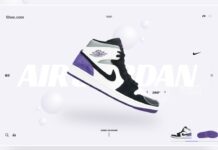There are many devices and apps to make it easier to monitor your health and exercise. Below is a list of valuable programs and devices that will help improve your health, set your body in the right mood, and enable it to work most efficiently. Look for more apps on appslikethese.
Devices
1. Fitness bracelets
The number of wearable smartwatches is 53 million units, which is 30% of total sales of wearable technology. The set of functions includes basic, which reads the heart rate and keeps track of steps taken during the day, and additional: sending messages, calling, viewing social networking feeds, and notifications.
Fitness bracelets make sure you don’t stay up too late and remind you if you need to take a break to rest and do a little recharging. In addition, they monitor your heart rhythm and help the user stick to his daily routine. Such a device will be an assistant in any activity: from office work to the gym.
2. Smart scales
This is the same floor scale that measures a person’s body weight. But it calculates the body mass index, percentage of fat, muscle mass, water, protein, and bones for the user. They also estimate your basal metabolic rate (BMR), which shows whether your body is working efficiently for your age. Then, you set a goal you want to achieve and track changes on a schedule. The scale transmits information to phones, tablets, and other devices via Bluetooth or Wi-Fi network.
3. Smart Water Bottle
To maintain water balance at the right level, you need to drink a certain amount of water per day. The amount for each person is calculated separately depending on their body weight, the goal they want to achieve, and other indicators. In addition, the innovative bottle is equipped with a sensor that keeps track of what you drink, reminding you if you have not drunk water for a long time. In conjunction with other devices, the smart bottle will show the history of water consumption and adjust the required rate depending on the level of activity.
4. Posture device
The main purpose of this device is to help a person develop the habit of maintaining posture. The device comes in different types and shapes and can be attached directly to the body or clothing. The sensor remembers the correct, straight back position and vibrates or beeps the app when you hump, bend or stoop. It is designed for people who spend long periods in one position, such as office workers and students. The disadvantage of this device is that the user himself initially sets the correct position of the back. Therefore, the device does not cure or correct back problems but helps develop a healthy habit.
Applications
1. Workout plan apps
Not everyone can afford to hire a personal trainer to make exercise productive and effective. Some apps will give you a complete, personalized workout program. You set the desired goal: pumping and toning muscles, losing weight, flexibility development. The application itself will calculate the correct load and prompts a set of exercises.
2. Applications – calorie counters
Scientists have proven that eating directly affects a person’s well-being, mood, physical activity, and general condition. Apps that calculate how much you eat during the day help you keep track of your diet. You enter your parameters – height, weight, age, and gender – which form the basis of your daily caloric intake. Then, over the day, you add what you eat.
The databases of such apps include simple foods, meals, ready-to-eat meals, and restaurant items. With each addition, you see how many calories you can eat to be within your daily allowance. In addition, the apps sync with other physical activity data and show you how many calories you’ve already burned. Analysis of the data for the period helps to see whether the user is losing or gaining weight.
3. Applications for sleep analysis
Healthy and adequate sleep is the key to a productive day. To sleep well, you need to go to bed at a specific time, create the right atmosphere in the restroom, wake up at the right moment of the cycle. Sleep analysis apps monitor and track your sleep: they read movements and sounds and determine the sleep phase. Then, you set a convenient time mode, or the app itself wakes you up at the right moment so that sleep is adequate for your body. It also shows your sleep statistics and gives you recommendations to improve your sleep.
4. Meditation apps
These apps use audio files with instructions and pleasant music. Meditation apps help you relax, get rid of physical tension, take your mind off pesky thoughts, free your mind for a while, and concentrate on your inner sense of self. With the timer and mode, you adjust the duration of meditation, control your breathing, and select unobtrusive sounds. Statistics of the time spent in meditation will show your progress, and reminders on the phone will motivate you to practice again.







